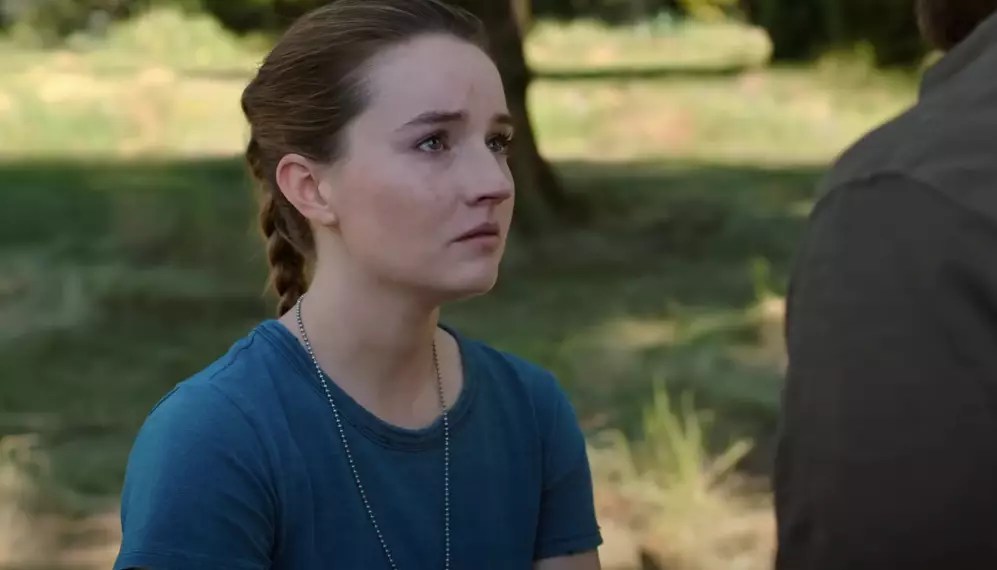In the haunting landscape of *The Last of Us Season 2*, the character of Abby, portrayed by Kaitlyn Dever, emerges with a chilling monologue that sets the tone for the season’s moral complexity. Right at the front, the audience is thrust into Abby’s longing for revenge against Joel, illustrated poignantly when she speaks of wanting to kill him “slowly.” This desire for vengeance serves not only as a plot catalyst but as a reflection of Abby’s psychological turmoil—a simmering rage that is rooted in profound loss, loss that defines her character throughout the series.
Dever notes the portrayal of Abby as a “chilly ice queen,” showcasing the character’s emotional detachment and the enigmatic layers that underpin her desire for retribution. This statement encapsulates Abby’s heartbreak and confusion in the wake of tragedy. For many viewers, Abby’s transformation from a victim of circumstance to an aggressor adds layers of complexity, enabling discussions and debates that resonate beyond the screen. Each word in her monologue carries the weight of her father’s death—a moment that profoundly shifts the narrative trajectory of *The Last of Us*.
Abby as a Symbol of Moral Ambiguity
Abby’s journey is not merely about revenge; it encapsulates a broader commentary on morality and the cyclical nature of violence. In an interview, Dever acknowledged the debates surrounding Abby’s character—debates that trace back to the release of *The Last of Us: Part II*. She is aware of the mixed reception that Abby received from fans, many of whom grappled with feelings of empathy and disdain. Nonetheless, Dever emphasizes the necessity of focusing on the character’s complex motivations rather than public opinion.
This focus on character depth reveals the show’s ambition: to present nuanced protagonists in a stark, post-apocalyptic landscape where notions of right and wrong are blurred. The creators, Craig Mazin and Neil Druckmann, appear unconcerned by any backlash, allowing the narrative to unfold organically. This confidence is mirrored in Dever’s own experience, as she did not audition for the role of Abby but was chosen for it based on her previous collaborations with the creators. The casting decision highlights a trust in the actor’s ability to explore the darker aspects of a character who incites both compassion and contempt.
The Emotional Weight of Revenge
Abby embodies the conflict within many characters in *The Last of Us*—a quest for vengeance paired with an undeniable sense of loss. The show carefully crafts her narrative arc to ensure that her motivations are understandable, if not justifiable. Dever portrays Abby’s heartbreak and longing for closure without sacrificing the character’s darker impulses. This duality will likely provoke viewers to reflect on the implications of revenge not just for Abby, but for the broader narrative at hand: who bears the true cost of violence, and is vengeance ever a viable solution to grief?
As the season unfolds, the compelling introduction of Abby invites speculation about the unfolding tensions between her and Joel, played by Pedro Pascal. The dichotomy between her quest for justice and Joel’s past transgressions creates a fertile ground for psychological exploration. The storytelling gives the audience room to question not only characters’ actions but also their own moral compasses in a world where survival often mandates crossing ethical lines.
Season 2: A Record-breaking Debut
The anticipation surrounding the second season is palpable, as it recorded a robust 5.3 million viewers on its premiere night, an impressive jump from its 2023 debut figures. This surge in viewership suggests that the complex narrative choices are resonating with audiences. It also indicates that viewers are hungry for more than just traditional narratives; they want a dialogue about the repercussions of actions that encompass both retribution and redemption.
Every Sunday night, the show unveils new episodes that not only entertain but deeply engage audiences in discussions about character motivations, ethical dilemmas, and the ramifications of a brutal, unforgiving world. The Last of Us challenges its viewers to not only witness but to reflect on what drives each character—asking us to confront the uncomfortable truths of ourselves and the world around us.
The distinctive approach taken in *The Last of Us Season 2* reveals an ambitious narrative, traversing the grey areas of human emotion and the consequences that arise from our impulses for revenge and justice. It offers a rich tapestry of storytelling that compels viewers to engage critically with the content while unraveling the tangled webs of its characters’ lives.


Leave a Reply